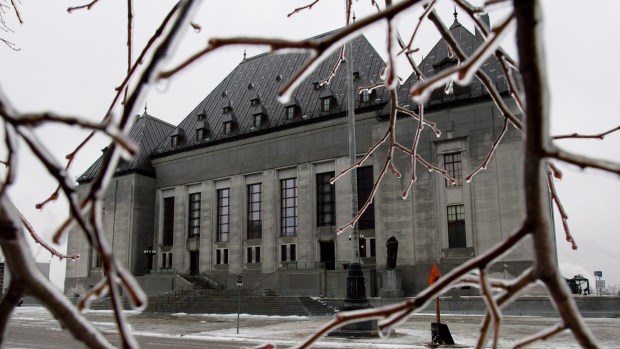
Supreme Court of Canada dismisses appeals in five jury-vetting cases
December 21, 2012 - 7:54 AM
OTTAWA - The Supreme Court of Canada has dismissed the appeals of five people who raised concerns about jury-vetting by police.
The high court said in three unanimous decisions Friday that all five had fair trials and there was no miscarriage of justice.
The Supreme Court did not exactly condone the actions of Crown attorneys who asked police in the Barrie, Ont., area to screen would-be jurors to see if they had criminal backgrounds or were otherwise "disreputable persons."
The results of those background checks were not disclosed to defence lawyers.
But the Supreme Court said jury-vetting did not get in the way of fair trials.
"The Crown's request for the police opinions and the failure to disclose those opinions were not so offensive to the community's sense of fair play and decency that the proceedings should be set aside as a miscarriage of justice," read one of the decisions.
"There was no appearance of unfairness that would shake the public's confidence in the administration of justice."
The cases involved four murder convicts and a convicted fraudster, all of whom claimed their trials were tainted by jury-vetting.
Ibrahim Yumnu, Tung Chi Duong and Vinicio Cardoso were convicted in 2005 of killing a couple in Barrie, Ont.; Troy Davey was convicted in 2005 of killing a police officer; and James Emms was convicted in 2008 of fraud.
They were among almost a dozen verdicts under appeal in Ontario over the checks, which also spawned an investigation by the provincial privacy commissioner almost two years ago.
The province's privacy commissioner, Ann Cavoukian, issued an order telling prosecutors to stop collecting personal information on would-be jurors beyond the allowed check for a criminal conviction.
Eighteen of the province's 55 Crown attorneys' offices had gathered personal information on prospective jurors since 2006, when the attorney general finally issued a memo ordering an end to the controversial practice, first raised in 1993.
Normally, background checks can be done on prospective jurors to ensure a criminal conviction has not rendered them ineligible to serve on a jury, a process Ontario's appeal court called "logical."
However, because information on jury candidates is bare-bones, police also accessed databases that went beyond revealing criminal records.
News from © The Canadian Press, 2012